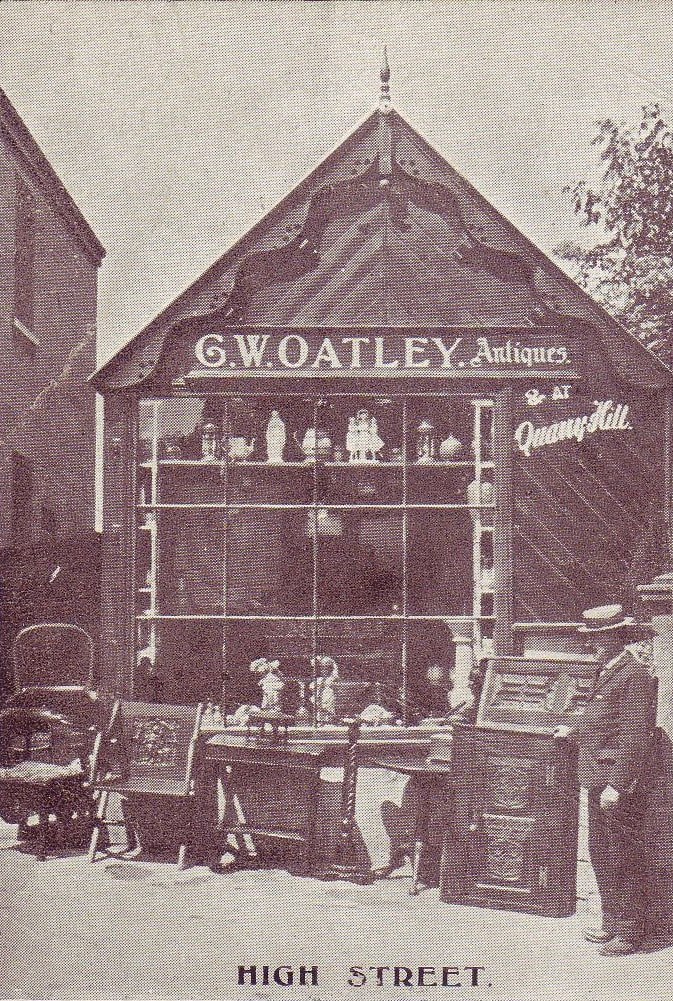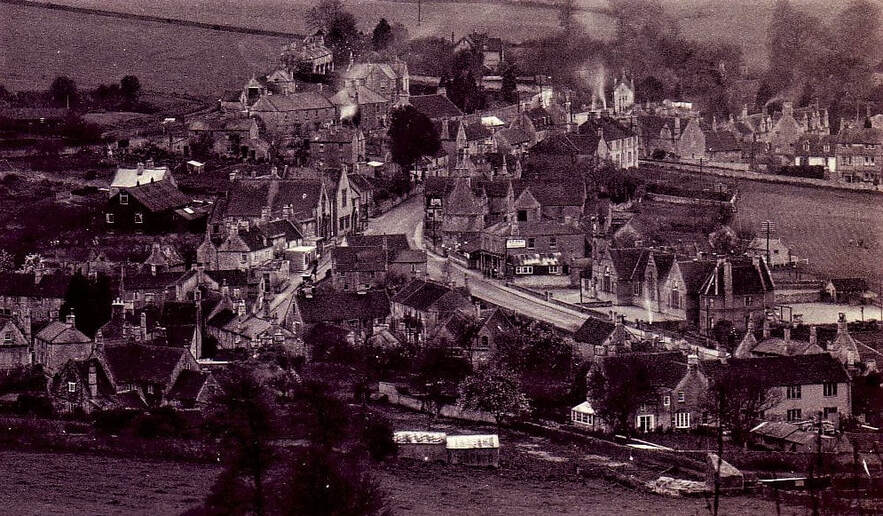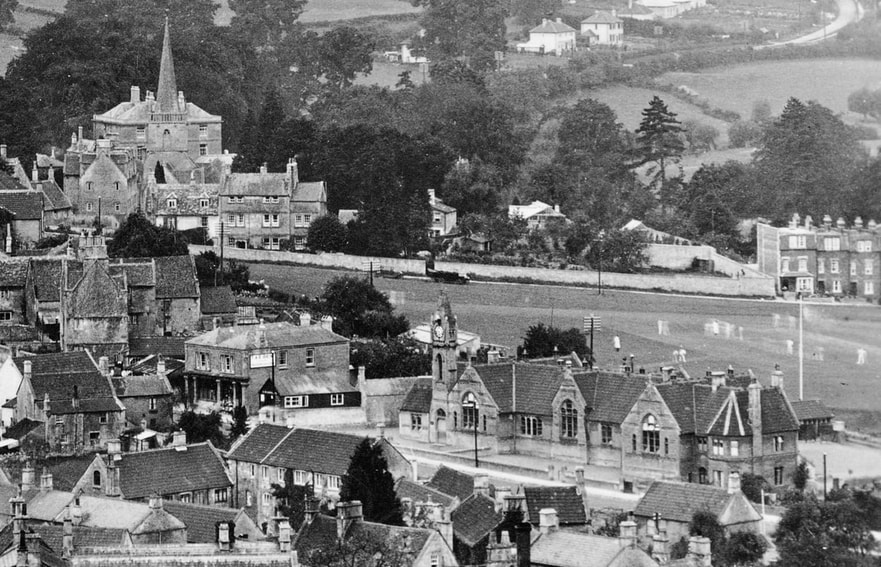|
The Box Shed That Thought it was a Shop
Alan Payne March 2020 Older residents remember a green shed in the middle of the village, between the School and Hardy House. It has now been demolished and dating its origin is difficult. We know the school was built in 1875 and a house called Alpha House was older, converted into a grocer’s shop owned by Charles Hardy and renamed as Hardy House. The first recorded use of the Shed was by Charles William Bond Oatley who set himself up as an auctioneer and opened the Shed as his shop on Box High Street, about 1900.[1] He appears to have used the premises to dispose of cheaper furniture and house clearance items at times of the depression in the stone industry in the decades around the First World War. |
In 1921, Alpha House (later re-named the Comrades Club) was acquired as a base for companionship and refuge for servicemen after the First World War. It is probable that the Shed was used for this purpose as locals remember that both the Comrades Club and the Shed were in operation for Home Guard needs in World War II.
After the Second World War, any military use of the Shed became irrelevant and the premises was rented by William (Len) Killick (1887-1968), a cobbler and bootmaker.[2] In 1913 he had married Grace Fryer (1895-1945) from Bermondsey, London. The family seem to have settled in Bath and later in Melksham but I haven’t found why they should have come to Box. Vicar Tom Selwyn-Smith wrote a small obituary in December 1968 saying: Mr Killick, our cobbler, has died. I see him look through the window of his shop by the school, always to wave and smile and in the shop with his “things are not what they used to be” conversation.[3]
Vicar Tom’s charming tribute seems to relate to the man and also to the little shop, both somewhat of an anachronism. The Shed later became a café for a short time, then an electrical shop. There are no Killick family left in Box and The Shed has now gone. Retail occupations have also changed and premises such as cobblers’ shops and small electrical repair businesses are greatly in decline in our modern world. We have all moved on.
References
[1] The Wiltshire Times, 9 December 1950
[2] Courtesy Eric Callaway
[3] Parish Magazine, December 1968
Vicar Tom’s charming tribute seems to relate to the man and also to the little shop, both somewhat of an anachronism. The Shed later became a café for a short time, then an electrical shop. There are no Killick family left in Box and The Shed has now gone. Retail occupations have also changed and premises such as cobblers’ shops and small electrical repair businesses are greatly in decline in our modern world. We have all moved on.
References
[1] The Wiltshire Times, 9 December 1950
[2] Courtesy Eric Callaway
[3] Parish Magazine, December 1968


